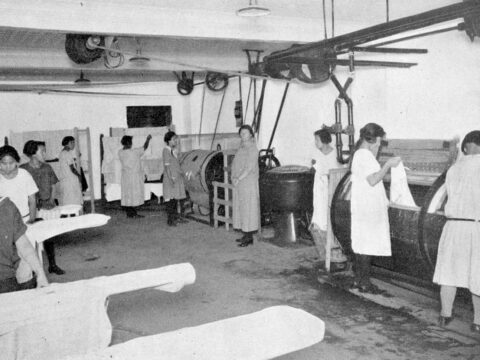Residential Schools, Colonization & Reconciliation
by Alexa BrisbinDuring my practicum at Gordon Head Middle School, Grade 7 students revisited the topic of residential schools and were introduced to the term ‘colonization.’ Students applied their existing and new knowledge about residential schools to better grasp the concept of colonization and reconciliation.
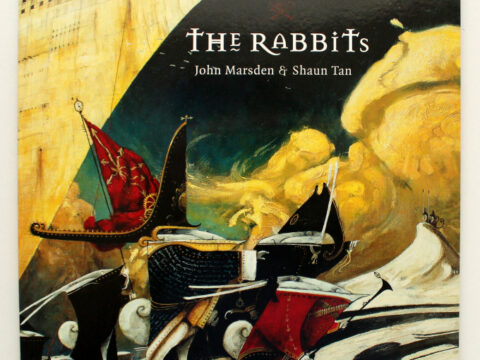
1In 1 playlists
We read the picture book, The Rabbits, to introduce the term 'colonization.' During the reading of the book each student described their transformed thinking as we discussed what colonization means.
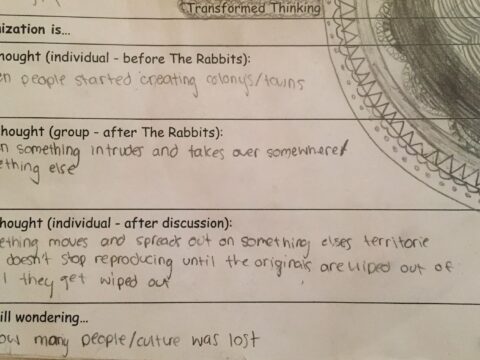
1In 1 playlists
Pictured here is a sample of a transformed thinking response during our reading of The Rabbits, by John Marsden and Shaun Tan.
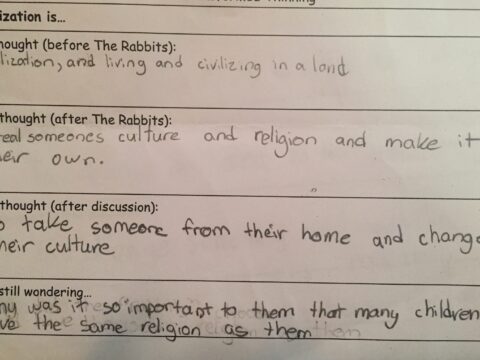
1In 1 playlists
Another student's reflection on colonization during the reading of The Rabbits.
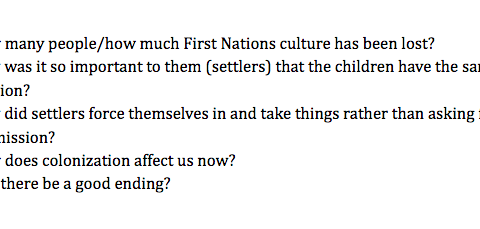
1In 1 playlists
Some questions our students composed to ask a local Elder near the beginning of our unit:

1In 1 playlists
We visited the RBCM near the end of our unit where Chris O’Connor hosted us in the First Peoples
Exhibit. The students sketched and responded to the exhibit’s narrative in personal journals. They also
examined and sketched artifacts/stories that reflected colonization. The file includes images of their entries.
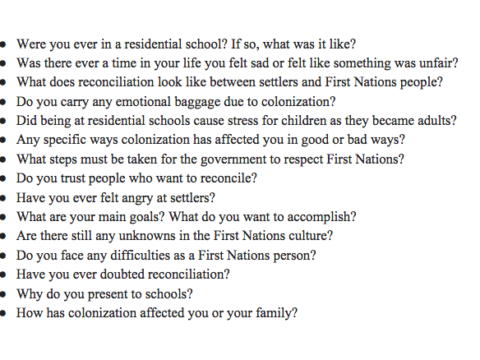
1In 1 playlists
Questions our students composed for Nella Nelson (ANED District Coordinator) near the end of our unit:

1In 1 playlists
Two Grade 7 students discussing language revitalization after exploring the Our Living Languages exhibit at the RBCM. Students predict what they believe is happening to the percentage of people who fluently speak First Nations languages in BC and strategies for language revitalization.
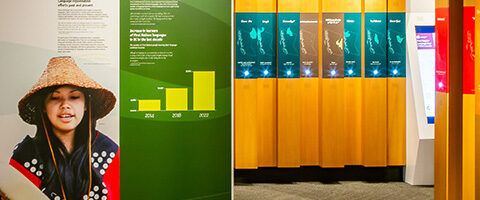
7In 7 playlists
Did you know BC is a language hotspot? Over 34 distinct indigenous languages are spoken here. Explore sounds, images, words and video about First Nations languages.
View Pathway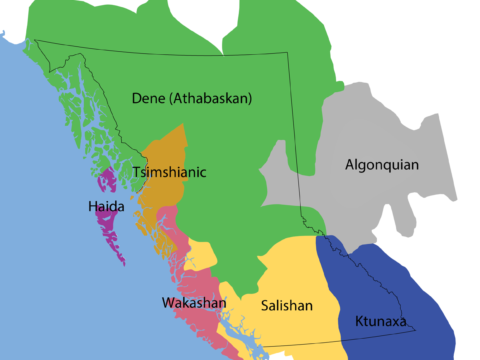
BC First Nations Language Families Map
Look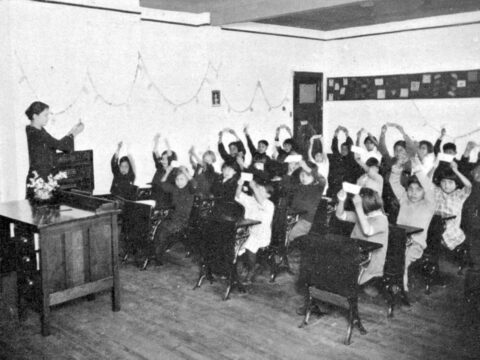
6In 6 playlists
How do we reconcile past wrongs? Look at documents and objects from the Royal BC Museum’s ethnology collection and archives to learn about the effects of Indian residential schools and think about how we can reach reconciliation.
View Pathway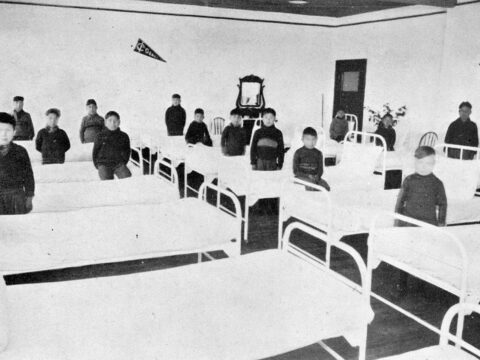
The little boys’ dormitory at the Coqualeetza Residential School, Sardis.
Look